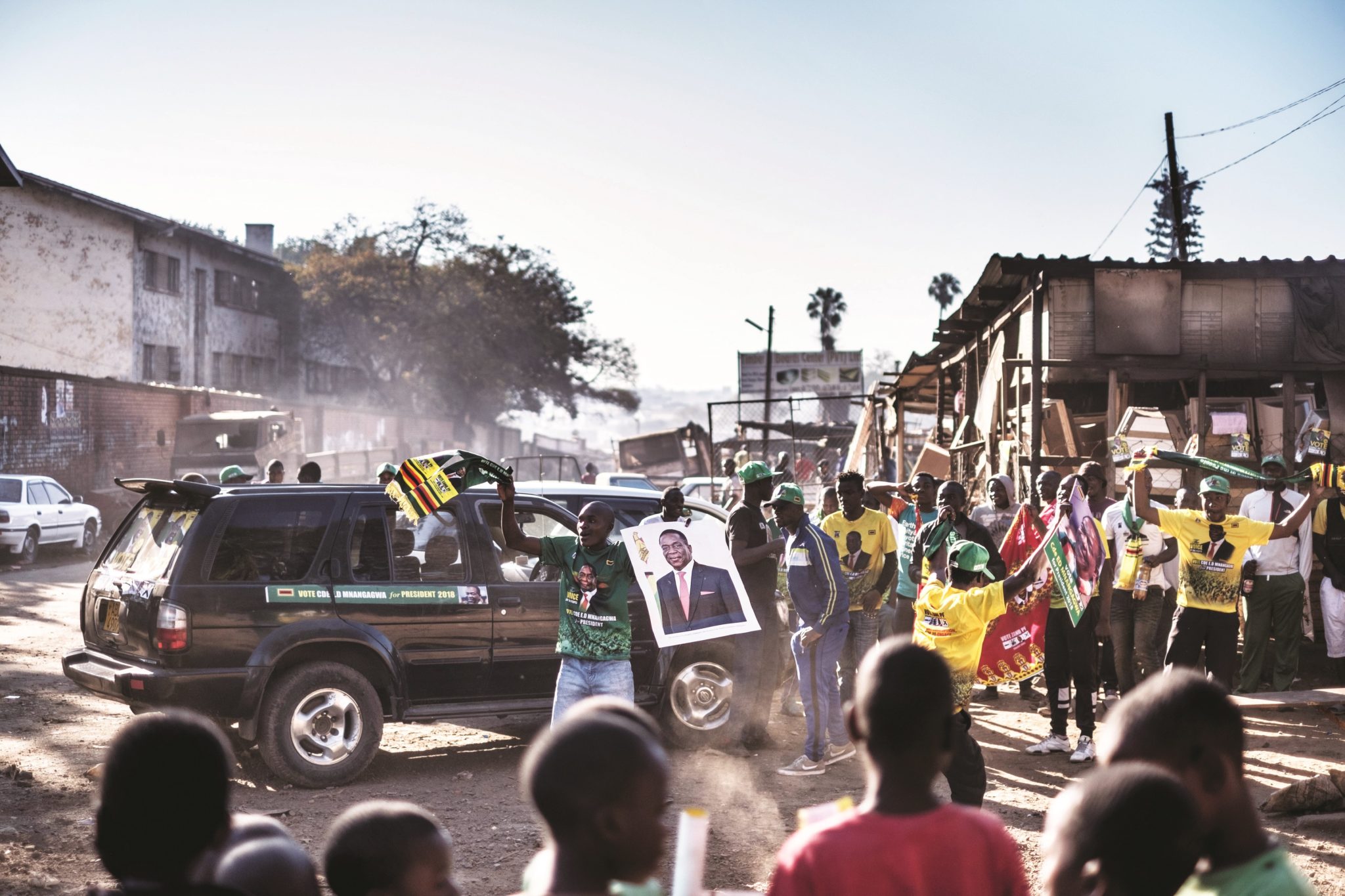Despite the ample investment opportunities in Zimbabwe, post-election setbacks challenge its economic recovery
Zimbabwe’s long-delayed economic turnaround may have been further pushed out after the army violently crushed protests following the country’s first elections without Robert Mugabe’s name on the ballot box.
Investors sitting on the fence before the polls will most likely walk away while others may postpone any commitments until the resolution of the legal challenges launched by the opposition Movement for Democratic Change (MDC) Alliance, or take cue from international lenders, analysts say.
“It’s going to take years and not the months that we anticipated for the economic recovery,’’ says John Robertson, a Harare-based independent economist who has analyzed Zimbabwe’s economy since independence in 1980 when Mugabe first took power.
“It’s going to be very difficult to win any credibility after last week’s activities.’’
Zimbabwe’s first elections without Mugabe had raised hopes the country was on the verge of rebirth after the least violent campaigning in almost two decades. But those hopes were dashed days after the polls as Nelson Chamisa, leader of the MDC alleged “overwhelming’’ evidence of vote-rigging, and the military killed six people amid beatings in the MDC’s urban strongholds.
The Zimbabwe Electoral Commission said incumbent Emmerson Mnangagwa won 50.8% of the vote and more than three quarters of parliamentary seats while Chamisa received 44% support, a number the MDC has dismissed, and challenged at the Constitutional Court. The case, which delayed Mnangagwa’s inauguration, was still pending at the time of going to press.
Mnangagwa, who had vowed a free and credible poll, had hoped to use its outcome to campaign for international support to rescue an economy that has more than halved in the last two decades, leaving more than 90% of workers unemployed.
READ MORE: Who Will Zimbabwe Vote For?
“In the short-term, sentiment will be determined by the outcome of the MDC’s challenge of the election results,’’ says Neville Mandimika, an economist at Rand Merchant Bank in Johannesburg.
“If their application is backed by solid evidence of blatant rigging, then it is likely that regional partners and sources of capital will hold back capital while the stalemate gets resolved.’’
International acceptance is key to the country’s hopes of winning debt forgiveness or restructuring an external debt of $11.3 billion at the end of last year, more than 80% of the country’s GDP. Combined with the domestic debt, the country is in debt distress and the situation is unsustainable, according to the International Monetary Fund (IMF).
Support from the IMF and other donors is critical for any government to solve one of the country’s most immediate and intractable challenges; a liquidity shortage that has constrained economic activity and forces Zimbabweans to queue for hours for the few available US dollars. The country adopted the US currency in 2009 after its own dollar collapsed as hyperinflation reached a record 79.6 billion percent in November 2008.
“The proper reintroduction of the Zimbabwean dollar is on the agenda of the current government, but it recognizes that there are certain conditions that must be in place for this to happen,’’ Mandimika says.
“Chief among these is ensuring that there are sufficient FX reserves which would allow for the central bank to manage the volatility of the currency, which is to be expected upon the reintroduction of the Zimbabwe dollar.’’
Cognizant of this, Mnangagwa, a long-time ally of Mugabe has tried to distance himself from his former boss’s disastrous economic and political policies, promising economic reforms and reversing some of Mugabe’s key policies such as on black economic empowerment, foreign direct investment and property rights. After the elections and violence, he took to Twitter to call for calm, calling the violence “regrettable & tragic’’.
He will need to do more than that, and in particular, put together a credible cabinet and also clearly define the role of the military, according to Dianna Games, an independent analyst.
“Investors will more closely be watching the economic policies put and interventions put forward by the new government than who is actually in State House,’’ says Games.
“The choice of the cabinet will be watched closely by investors, particularly given the volatility in the past of Zanu-PF actions in sweeping aside investor agreements in the name of political expedience, particularly with regard to agriculture. A strong military presence in the executive may be a red flag.’’
The country has so much goodwill and potential to tap that a recovery is almost a matter of time, analysts say.
“Overall, I think there is little doubt that, despite an election tainted once again by allegations of rigging and violence, Zimbabwe is poised for some sort of economic recovery,’’ says Games. “There are many investment opportunities, the economy is resilient, there are many skills that could be brought back into the formal sector, there is experienced management in the private sector and Zimbabweans have proved to be innovative even in the hardest of times. These all bode well for a recovery although it may not be as swift as people hope for given the current challenges in the economy.’
– By Godfrey Mutizwa
